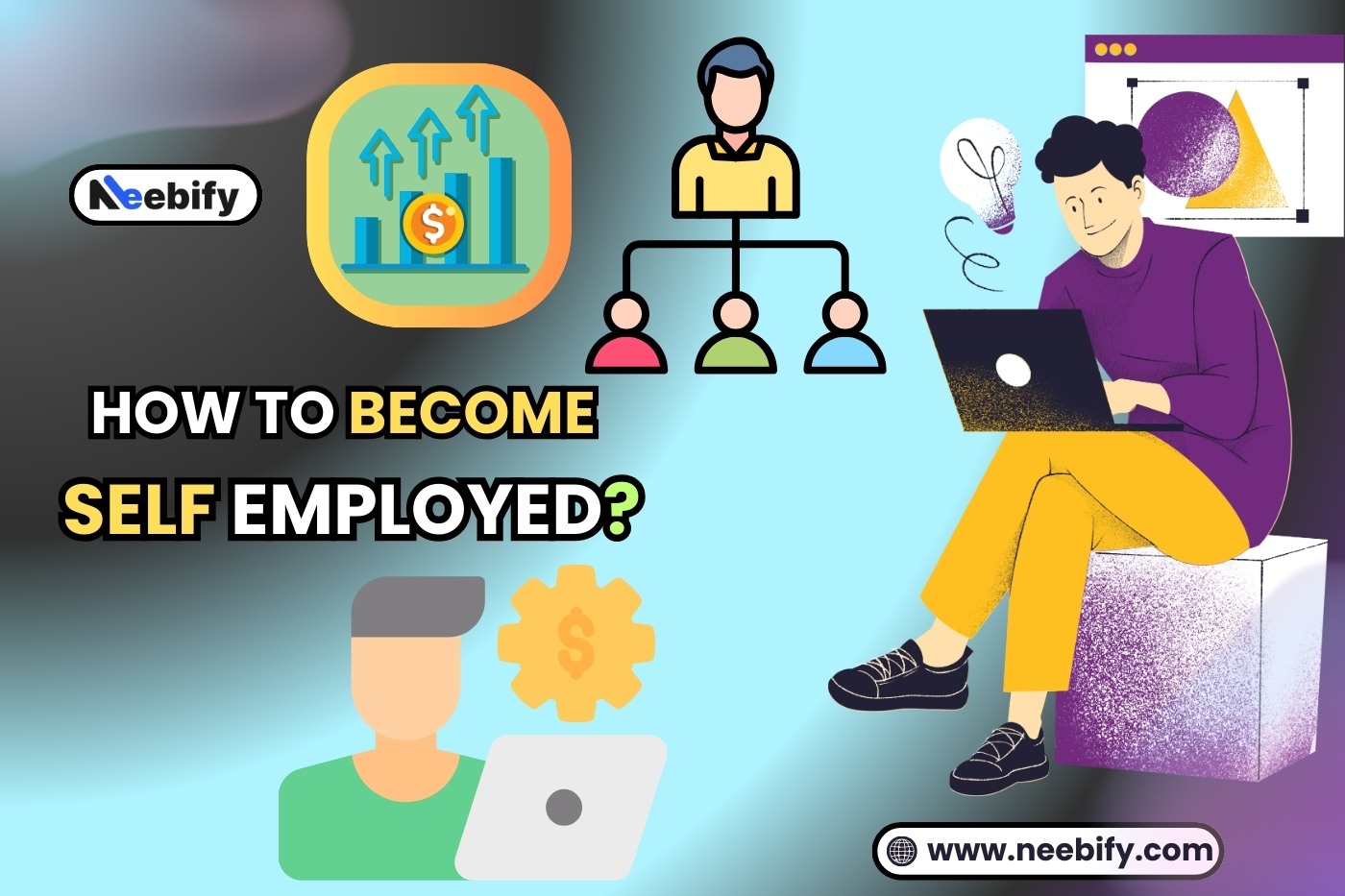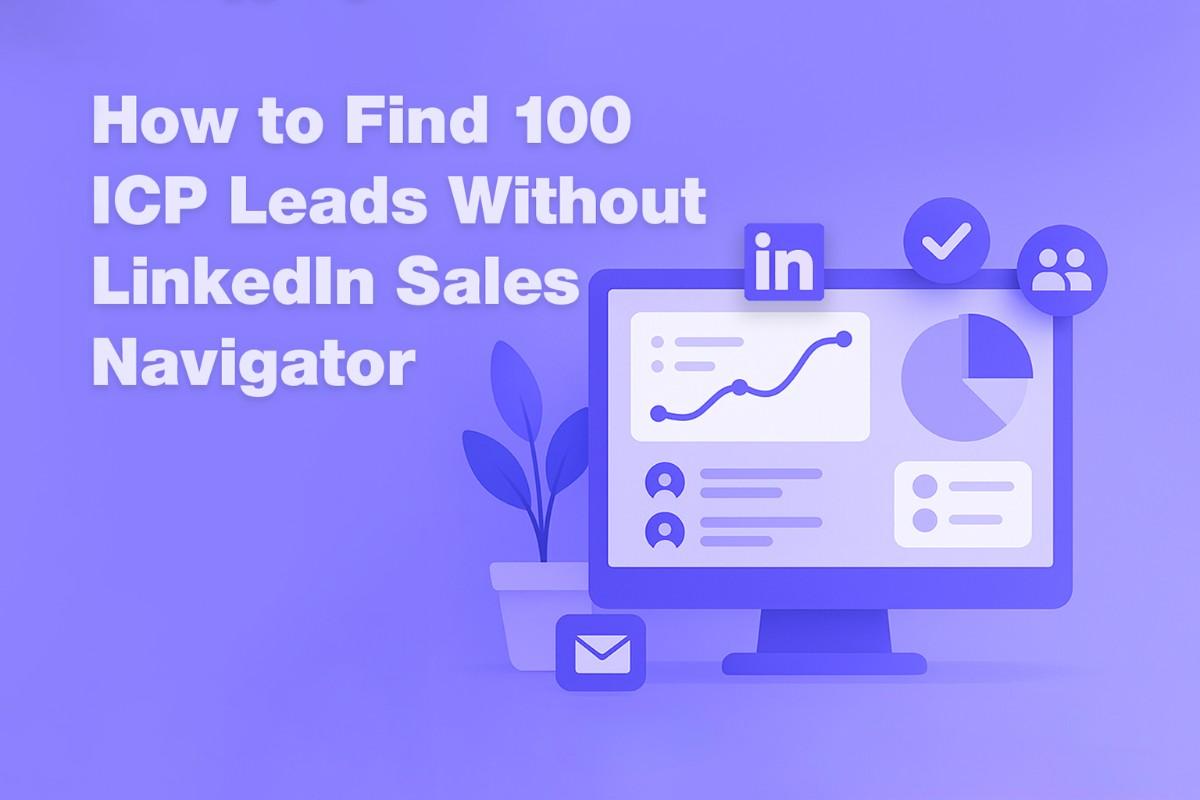Table of content
How to Become Self-Employed?
In recent years, the concept of self-employment has become widely popular. With the rapid advancement of technology and the high demands for flexible work arrangements, more and more people are becoming interested in how to become self-employed. If you are tired of your 9-to-5 job or just want a better balance between your work life, then self-employment can offer you many opportunities. This general guide will walk you through the steps to being self-employed, explores different types of self-employment, and goes over the pros and cons of self-employed. We will also give you self-employment tips, income ideas, and advice to help you start your journey to independence.
What is Self-Employment?
Self-employment is working for oneself instead of being employed by some organization. A self-employed person owns and operates his or her business while owning the risks of income-generating systems. Unlike the employee who gets a fixed sum of money, a self-employed person earns income in most cases through selling goods or offering services. Self-employment can thus be a broad range of careers such as freelancing, consulting, and opening a firm.
Being self-employed offers flexibility and control over your career but comes with its challenges. Individuals who are self-employed typically have more freedom regarding when, where, and how they work. They are responsible for paying their own taxes, managing clients, and handling all aspects of their business operations.
Types of Self-Employment
Self-employment does not come in one size. There are various different paths you can take, and each has its challenges and rewards. Here are some of the common types:
1. Freelancing vs Self-Employment: Freelancing is considered to be one of the most commonly found forms of self-employment. As a freelancer, you typically work with clients for single or short-term projects/tasks, and their schedule is mostly flexible, allowing them to work for several clients at the same time. Popular freelance careers include writers, graphic designers, web developers, and digital marketers.
Freelancing vs self-employed may seem similar but differ in terms of long-term stability. Freelancers tend to work project-based, whereas a self-employed individual who owns a business might have employees or long-term contracts that provide more consistent income.
2. Consulting: There are many professionals who become consultants by offering their expertise to companies or individuals. This can be a promising business if you have specialized knowledge in any of these areas: business strategy, marketing, finance.
3. Starting a business as self-employed: Means that way, you get to establish your company. This may vary from opening a retail store near you to developing an online-based business. As a business owner, you will be in charge of developing a product or service that will accommodate the needs of the market, hiring employees if needed, and managing all financial aspects for the business.
4. Contract Work: This is signing an agreement for undertaking a specific job or project. It is more flexible than employee type work; however, as a contractor, you must always find and maintain clients. Examples of this kind of self-employment can be found in construction, IT, graphic design, and many other industries.
5. Entrepreneurship: Entrepreneurs are self-employed individuals who come up with new products or services and take them to the market. Entrepreneurship requires not only a great idea but also sufficient effort, investment, and risk management skills. Entrepreneurs tend to launch their businesses to scale and grow beyond what freelancing offers.
6. Self-Employed Person Work Online: Many self-employed individuals are online workers, providing services to clients all over the world. Such people include, for instance, digital marketers, virtual assistants, and some mentors, teaching people from other parts of the world. How to become a self-employed person in this space requires information related to certain platforms, tools, and systems that allow one to work online.
Steps to Becoming Self-Employed
Being self-employed is, of course, a very big decision that requires careful consideration. So here are the key steps toward becoming self-employed:
1. Identify Your Skills and Interests: The first step is to determine what you are passionate about and what you can offer. Consider your skills, experience, and interests. Whether you are an expert in digital marketing, writing, or programming, self-employed career ideas can stem from what you already know or want to learn.
2. Create a business plan: Even when a business is small. This enables you to lay down your business plan, goals of the business, target market, pricing strategy, and a project income and it serves as a strategic roadmap to achieving success.
3. Legal Requirements and Structure: How to set up your own business, choose the best legal structure. The legal structure of your business affects the taxes, liability, and ways you can raise funds. Register your business in the relevant authorities and acquire the appropriate licenses and comply with all local regulations.
4. Budgeting and financial planning: The self-employee has a lot to handle, mainly regarding his finances, such as taxes and health insurance as well as retirement savings. Carefully plan your budget, and be certain you have sufficient savings to carry through the early stages of your self-employment career.
5. Marketing Your Services: If it is a business start up or freelancing, marketing is a must. Build a professional website and optimize your SEO. Engage on social media as well. Content marketing, networking, and referrals are crucial in reaching out to clients.
6. Networking and Building Relationships: To be successful as a self-employed individual, it's crucial to network with other professionals and build relationships within your industry. Attend industry events, join online forums, and engage with potential clients and partners.
Benefits of Self-Employment
Self-employment offers numerous benefits that attract people seeking independence and flexibility. Here are some of the key benefits of self employment:
1. Flexibility and Control: As an independent, you have full-time control over your schedule. You can set your own schedule, work from home, or travel while still managing the business. That is one reason for a better work-life balance.
2. Unlimited Earning Potential: Unlike traditional employees, self-employed people can dictate their prices and work as much as they want. Self-employment income ideas are unlimited only based on the industry, skills, and business model.
3. Personal Satisfaction: Most individuals find self-employment deeply personally satisfying because they are working on projects that would really interest them. Being your own boss also gives you the satisfaction of knowing that your success depends on your efforts.
4. Tax Benefits: Self-employed individuals can deduct business expenses from their taxes, which can help reduce their overall tax burden. This includes office supplies, travel expenses, and even a home office if you qualify.
5. Creative Freedom: As a self-employed individual, you have the freedom to make decisions regarding how to run your business. Such an autonomy of choice empowers you to research new ideas, products, or services without necessarily having to ask someone for permission to do so.
Disadvantages of Self-Employment
While self-employment has various benefits, it also has several downsides. It is important to note the disadvantages of self-employment before making the leap.
1. Financial Uncertainty: Unlike a salaried job, as a self-employed person, your income can be inconsistent. It is very important to have a financial cushion and a steady flow of clients to get you through lean months.
2. No Employee Benefits: Self-employed individuals do not receive benefits as an employee would: health insurance, paid vacation, retirement contributions, etc. You will need to make these provisions for yourself.
3. Self Discipline: Once you are your own boss, it involves great time management skills as well as self discipline because you don't have a manager telling you what to do and when to do it.
4. Admin Work: In addition to the work you'll earn money for, you will have to handle administrative work like bookkeeping, marketing, client communications, and many others.
5. Loneliness: The advantage of doing this kind of work is that you might miss the social advantages that come along with working in an office. For others, it can be isolating if they are used to a more collaborative setting.
Self-Employment Tips for Success
To succeed as a self-employed person, here are some self-employment tips:
1. Keep it small: Starting small is a good idea as this self-employment for beginners would scale up your business gradually. This helps prevent being overwhelmed by too much from the start.
2. Stay Organized: Manage client relationships, finances, or schedules-however, stay organized to ensure long-term success. Invest in productivity tools to streamline operations.
3. Focus on Client Relationships: As you maintain long-term relationships with your clients, you will grow your business. Always deliver quality work and effectively communicate to ensure customer satisfaction.
4. Diversify Your Income Streams: Identify ways to generate multiple self-employment income ideas. For instance, if you are a freelance writer, you can now expand into teaching writing courses or offering content strategy services.
Conclusion
Self-employment - an exciting and rewarding journey that requires careful planning, dedication, and a willingness to take risks. By following these steps to becoming self-employed, being aware of the pros and cons of being self-employed, and by utilizing the self-employment resources available, you will be able to create a successful and sustainable career. Whether interested in freelancing vs self-employment, business, or consulting, the world of self-employment offers endless possibilities. With determination and the right mindset, you can achieve your dream of working for yourself and enjoy the many benefits that come with it.
Get your next meeting in a
matter of minutes.
Free Trial
Latest
The Ultimate LinkedIn Outreach Playbook 2025
A practical, modern guide to mastering LinkedIn outreach in 2025 — learn how to boost reply rates, p
12/1/2025How to Find 100 ICP Leads Without LinkedIn Sales Navigator
Generating 100 targeted ICP leads doesn’t require LinkedIn Sales Navigator. Learn how to leverage fr
11/28/2025


